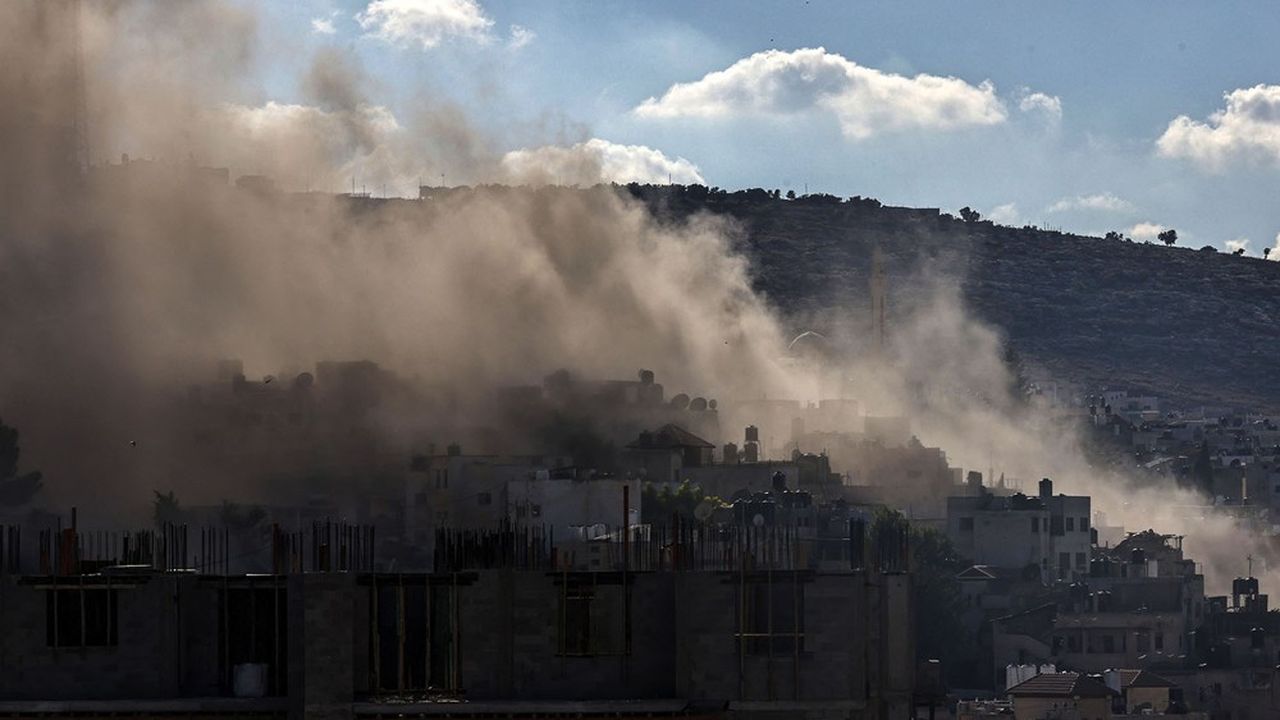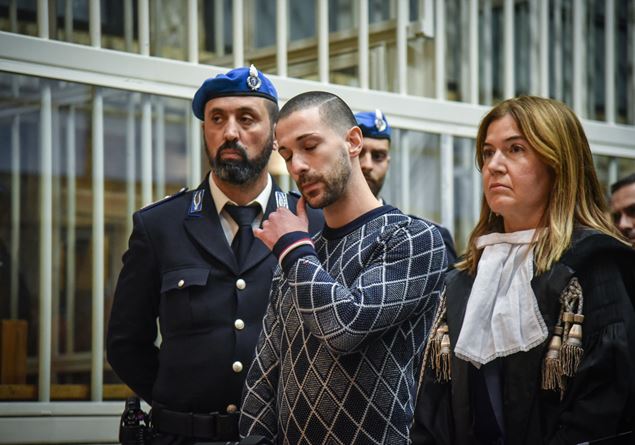
To foil any attempt to revive an “Intifada”, a popular uprising in Arabic, like the West Bank has experienced two in the past. This is the mission that the Israeli army has been tackling for ten days during the largest military operation conducted in this region in 20 years. The operation, which ended on Friday and was nicknamed “summer camp”, targeted the north of the region and especially the city as well as the refugee camps of Jenin, where the clashes were the hardest. In total, 36 Palestinian members of Hamas or the Islamic Jihad, an even more radical organization, were killed and 46 others taken prisoner, according to the IDF’s report.
The army used drastic measures, including for the first time suicide drones. Stockpiles of roadside bombs and weapons were discovered. It was precisely to avoid such bombs that the IDF used armored bulldozers to clear a path, a method that caused serious damage to buildings, especially in the Jenin refugee camp. During the fighting, 85 percent of the camp’s residents fled the city to seek safety, according to the army.
Preventive operation
The offensive was “preventative” in nature. It was launched shortly after a failed suicide bombing in August, when a bomb carried in a backpack by a Palestinian from the West Bank exploded prematurely in Tel Aviv. A passerby was injured and the bomber was killed. The attempt immediately alarmed authorities, who fear that Hamas will carry out its threats to renew a campaign of suicide bombings in Israeli cities like those that killed hundreds in the late 1990s and during the second intifada between 2000 and 2004.
The second goal is to curb the activism of Hamas. Since the beginning of the war in Gaza, which began on October 7 following massacres committed by this Islamic movement in southern Israel, the latter has been trying to set the West Bank ablaze as a sign of solidarity with the Gazans, if only to reduce the military pressure of the Israeli army in the Gaza Strip.
Danger of fire
So far, this plan has failed. The army and the Shin Bet, the internal security service responsible for the fight against terrorism, have spared no effort to prevent a new front from opening up. Since October 7, 670 Palestinians have been killed and 5,000 arrested, including 2,000 Hamas members. For the military, however, the danger of a conflagration is far from over. Several factors are contributing to the rise in tensions.
Small groups of extremist settlers are increasing violence against Palestinian civilians to the point that the head of the Shin Bet, Ronen Bar, has denounced the emergence of “Jewish terrorism” while the perpetrators of these atrocities enjoy near-impunity. On the other hand, the economic situation is disastrous. More than 100,000 Palestinian workers employed in Israel before the war are banned from staying and reduced to unemployment without compensation.
“Breeding ground for terrorism”
This rise in poverty and social discontent is an “ideal breeding ground” for terrorists who play on the frustration of the inhabitants, military commentators point out. Israeli officials also denounce Iran’s attempts to help armed Palestinian groups in the West Bank. “Ali Khamenei (Iran’s supreme leader) wants to arm Judea and Samaria (the biblical name for the West Bank), as he did with Gaza,” accused Israel Katz, the Israeli foreign minister on Friday after a meeting with his German colleague Annalena Baerbock. In other words, the end of the “summer camp” operation is only a step. As the army spokesman points out, “our forces will continue their operations in order to achieve our objectives.”







